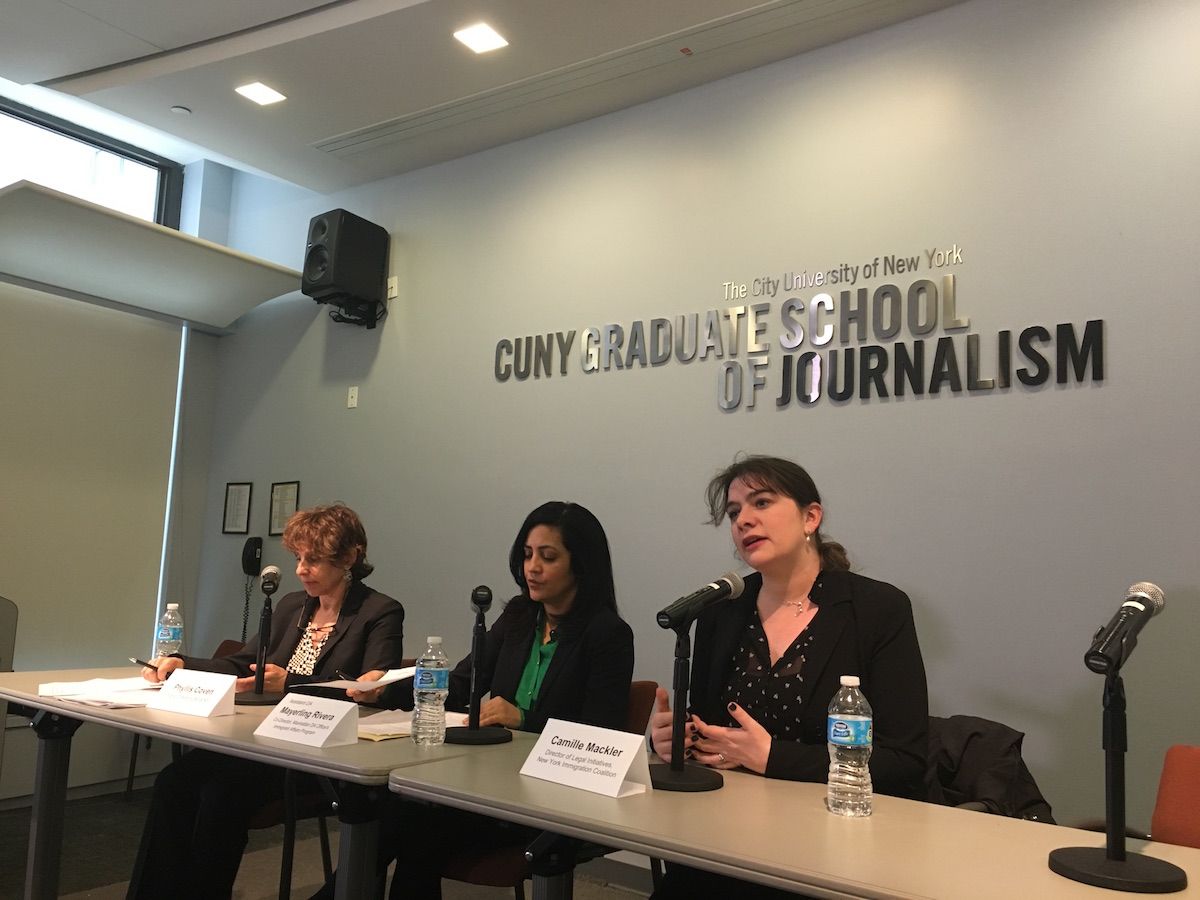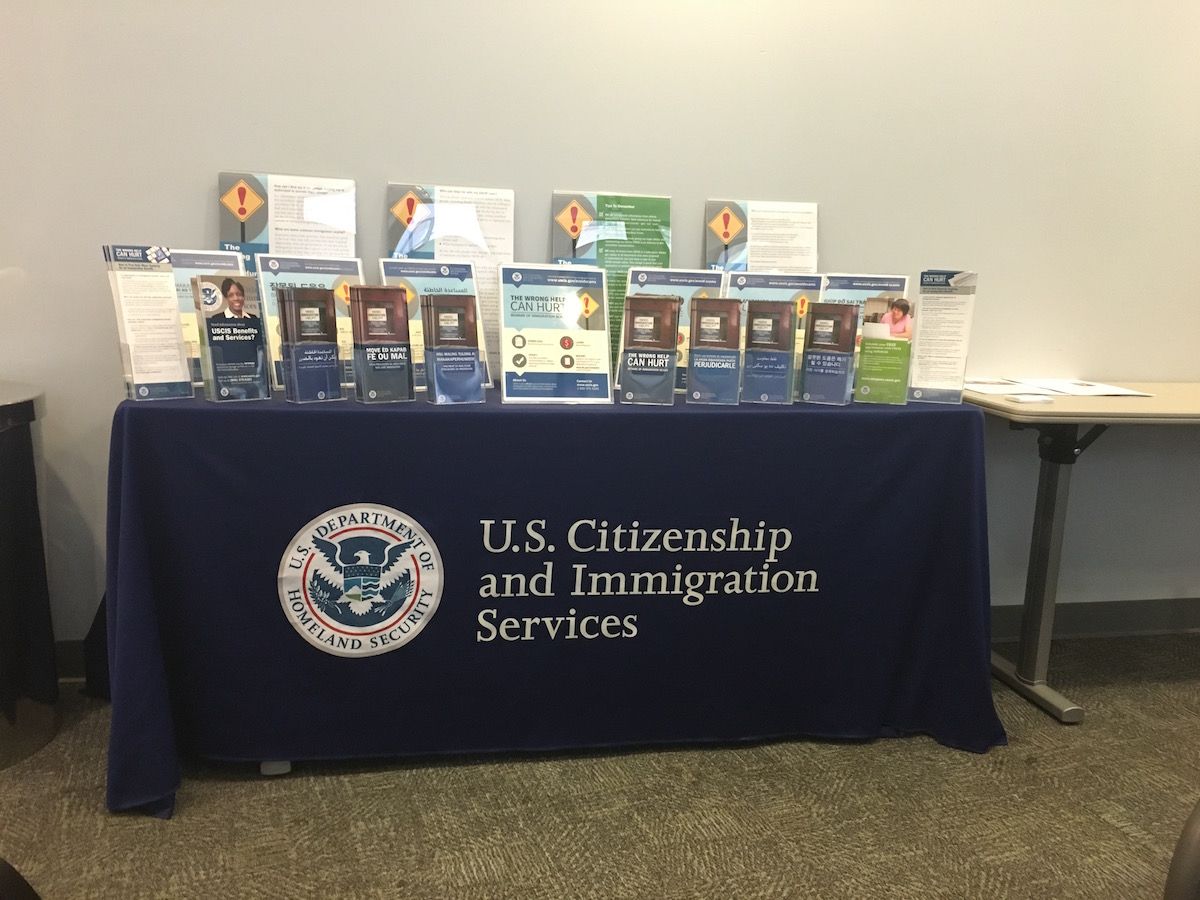These Are The Top Scams Targeting Immigrant Communities


Two weeks after a fake Sunset Park lawyer was sentenced to two to four years in prison for scamming immigrants out of thousands of dollars — the first such conviction in New York State — a forum was held at the CUNY Graduate School of Journalism to raise awareness about a pattern of fraud schemes preying on immigrants in the city.
Speakers at the March 24 event included representatives from the Manhattan District Attorney’s office, the United States Citizenship and Immigration Services, and the New York Immigration Coalition.
Despite the Sunset Park case being the first conviction of immigrant services fraud, these scams are not new. Many cases never get reported to officials because of a lack of trust between undocumented immigrants and government agencies, according to Mayerling Rivera, Assistant District Attorney and co-director of the Immigration Affairs Program at the Manhattan District Attorney’s office
“Immigrants are particularly vulnerable to crime and also one of the populations that’s most reluctant to report if they are victims of crime,” said Rivera. “Many Immigrants have a fear of deportation. Sometimes there’s a language barrier. Many immigrants work two jobs, long hours, so there are time constraints that put barriers up.”
The Asian community in southern Brooklyn has been the target of a recent wave of burglaries, because a distrust of the government and the banks has lead some to store money and valuables in their homes. These crimes go unreported because of the immigrant community’s hesitance to interact with police, according to Rivera.
The forum held on Thursday was an attempt to connect with immigrant communities to help them feel more comfortable about reporting these types of scams. The speakers emphasized that there are organizations that can help immigrants not only with con artists, but also with immigration paperwork.

“Scammers prey upon consumers, taking advantage of the fact that so many want immigration benefits, but are unsure how to get them,” Phyllis Cowven, District Director of the USCIS, said at the forum. “We see it as our responsibility to inform people how to apply for benefits, and how to protect them from scammers who pretend to be helpful.”
Cowven warned of people pretending to be USCIS employees when scamming immigrants. The con artists make phone calls and design fake websites pretending to be a USCIS officer to gain personal and financial information. The USCIS does not make phone calls for immigrant interviews for any information, according to Cowven.
“There’s an expression: imitation is the highest form of flattery, but in the case of these scams, imitation is the highest form of deception,” Cowven said.
Assistant District Attorney Rivera is the director of her office’s Immigration Affairs Unit, which is the first of its kind in the nation, according to Rivera. Brooklyn now has a similar unit as does Queens and Nassau County to “prosecute crimes of fraud against immigrants,” and educate immigrants in avoiding scams, Rivera said at the forum.
Rivera listed the most common schemes targeting immigrants in New York City. First was the “unauthorized practice of law,” such as the Sunset Park scammer. Also, some notaries act as lawyers to deceive hispanic immigrants because in certain latin countries, notaries are authorized lawyers.
Second on Rivera’s list is people posing as immigration officials, like a USCIS officer. People make up a dream route for immigrant’s paths to citizenship that don’t actually exist, and charge thousands for these fake routes. Lastly, people often provide forms for immigrants, and charge them an exorbitant amount of money when the documents are free and available to anyone online (click here for Spanish).
Camille Mackler, director of legal initiatives for New York Immigration Coalition, urged immigrant communities to become informed about resources available to them.
“There are individuals and offices in New York who will protect, who will help, who will not just refer you to immigration or customs enforcement, who will try to uphold your rights no matter what,” she said. “If you’ve been a victim of a crime, we will prosecute that crime.”
Immigrants can obtain more information at www.protectingimmigrants.org, or call the New York State New American hotline to place complaints of immigration fraud. The number for the hotline is 1(800) 566-7636 or (212) 419-3737.




